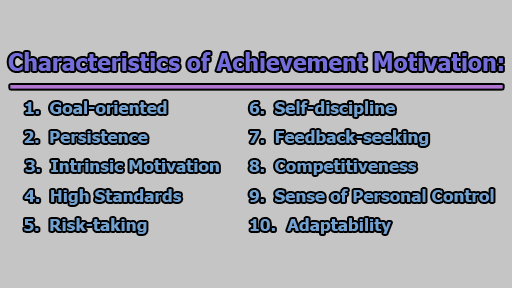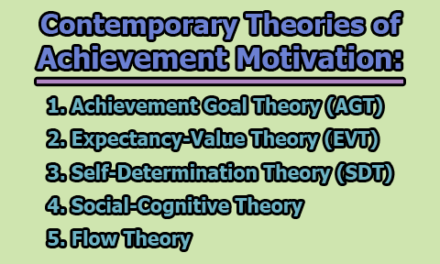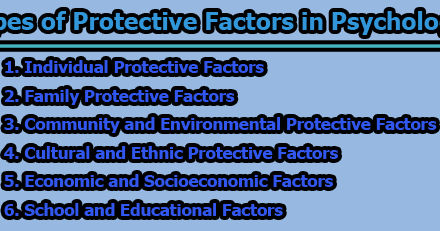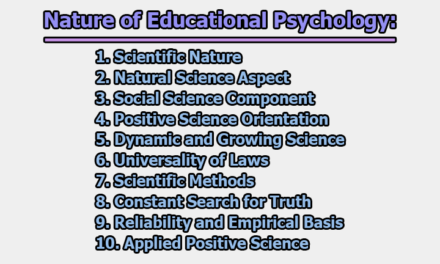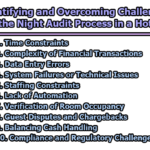Achievement Motivation:
The term achievement motivation may be defined by independently considering the words achievement and motivation. Achievement refers to competence (a condition or quality of effectiveness, ability, sufficiency, or success). Motivation refers to the energization (instigation) and direction (aim) of behavior. Thus, achievement motivation may be defined as the energization and direction of competence-relevant behavior or why and how people strive toward competence (success) and away from incompetence (failure). In the rest of this article, we will explore the definition, types, and characteristics of achievement motivation.
Definition of Achievement Motivation:
Hill (2001), Achievement motivation concerns with the desire to do well, succeed and reach standards in ones own eyes and the eyes of others, and reflects a willingness to persist in behavior that enables higher standards to be reached despite the possibility of failure.
McClelland, Atkinson, Clark, & Lowell, (1953), Achievement motivation is affect in connection with evaluated performance in which competition with a standard of excellence was paramount.
Heckhausen (1967), Achievement motivation can, therefore, be defined as the striving to increase or to keep as high as possible, one’s own capabilities in all activities in which a standard of excellence is thought to apply and where the execution of such activities can, therefore either succeed or fail.
Atkinson and Feather (1966), Achievement motive is conceived as a latest disposition which is manifested in overt striving only when the individual perceives performance as instrumental to a sense of personal accomplishment.
Gupta (1993), Achievement motivation concentration primarily upon achievement related behavior. Behavior in which there is competition with a standard of excellence.
Atkinson (1964), defined achievement motivation as the tendency to endeavor for the attainment of a goal. A specific motive is concerned with attainment of specific type of goal.
Type of Achievement Motivation:
Achievement motivation can be categorized into two primary types: intrinsic achievement motivation and extrinsic achievement motivation.
1. Intrinsic Achievement Motivation: Intrinsic achievement motivation, defined as the internal drive to accomplish tasks or engage in activities based on personal enjoyment or interest, is rooted in the satisfaction derived from the task itself rather than external rewards.
Characteristics:
- Internal Satisfaction: Intrinsic motivation is characterized by the internal satisfaction individuals find within the activity or task, emphasizing the enjoyment of the process.
- Interest and Enjoyment: Individuals are motivated by genuine interest in the task or a sense of enjoyment derived from the activity, reflecting the intrinsic nature of their motivation.
- Autonomy: Intrinsic motivation often involves autonomy and self-direction, as individuals willingly choose to engage in activities.
- Personal Accomplishment: The focus of intrinsic motivation is on achieving personal goals and standards of excellence for the sake of self-fulfillment and accomplishment.
Associated Theories:
- Attribution Theory: Fritz Heider’s attribution theory provides insights into intrinsic motivation by emphasizing the individual’s perception of the cause and effect of their actions.
- Self-Efficacy: Albert Bandura’s work on self-efficacy suggests a link between intrinsic motivation and an individual’s belief in their ability to perform a task successfully.
- Cognitive Evaluation Theory: Developed by Deci and Ryan, this theory explores how external factors impact intrinsic motivation, highlighting the role of autonomy and perceived competence.
Research Findings: Studies conducted since the 1970s consistently associate intrinsic motivation with high educational achievement and overall enjoyment in various tasks (Deci, Vallerand, Pelletier, & Ryan, 1991).
- High Educational Achievement: Numerous studies conducted since the 1970s consistently show a positive association between intrinsic motivation and high educational achievement. Students who are intrinsically motivated tend to exhibit a strong desire to learn for the sake of learning, leading to improved academic performance and a deeper understanding of the material (Deci, Vallerand, Pelletier, & Ryan, 1991).
- Enjoyment and Engagement: Intrinsic motivation is closely linked to a sense of enjoyment and engagement in tasks. Individuals driven by intrinsic motivation are more likely to immerse themselves in activities, leading to sustained interest and commitment over time (Deci & Ryan, 2000).
- Quality of Performance: The focus on personal accomplishment within intrinsic motivation is reflected in the quality of performance. Studies indicate that individuals motivated intrinsically are more likely to strive for excellence, resulting in higher-quality outcomes and a sense of mastery (Deci & Ryan, 2002).
- Autonomous Regulation: Intrinsic motivation is associated with autonomous regulation, where individuals feel a sense of volition and personal endorsement of their actions. This autonomous regulation contributes to greater persistence, effort, and overall positive well-being (Deci & Ryan, 1985).
- Psychological Well-being: Research consistently suggests a positive relationship between intrinsic motivation and psychological well-being. Individuals who engage in tasks for the inherent satisfaction it provides experience higher levels of positive affect and fulfillment (Deci & Ryan, 2000).
2. Extrinsic Achievement Motivation: Extrinsic achievement motivation involves the pursuit of tasks or goals based on external factors or rewards, such as recognition, grades, money, or social approval, rather than intrinsic satisfaction.
Characteristics:
- External Rewards: Extrinsic motivation is characterized by the pursuit of tangible rewards, emphasizing grades, money, or social recognition as external motivators.
- Social Comparison: Individuals may be motivated extrinsically by a desire to outperform others, emphasizing success in competition and social recognition.
- Coercion and Threat: Extrinsic motivation can be induced through coercion or the threat of punishment, pushing individuals to perform certain tasks.
- Overjustification Effect: Research indicates that excessive external rewards may lead to a reduction in intrinsic motivation, known as the overjustification effect.
Extrinsic Motivators:
- Tangible Rewards: Money, grades, trophies, and other tangible rewards serve as common extrinsic motivators.
- Social Approval: Approval from others, such as applause or recognition, can drive extrinsic motivation.
- Threat of Punishment: Fear of negative consequences or punishment may motivate individuals extrinsically to perform certain actions.
Research Findings: Studies suggest that an overreliance on extrinsic rewards can sometimes undermine intrinsic motivation, leading to a decline in the individual’s inherent enjoyment of the task (Deci, Koestner, & Ryan, 1999).
- Impact of External Rewards: Studies on extrinsic motivation highlight the impact of external rewards, such as grades or monetary incentives, on individual behavior. While extrinsic rewards can initially enhance performance, excessive reliance on external reinforcement may lead to a phenomenon known as the overjustification effect (Deci, Koestner, & Ryan, 1999).
- Competition and Social Recognition: Extrinsic motivation, often fueled by a desire for social recognition and success in competition, has been found to influence behavior in contexts where individuals seek external validation. The pursuit of rewards and recognition from others can impact the overall motivation and satisfaction derived from an activity (Festinger, 1954).
- Threat of Punishment: Extrinsic motivation induced through the threat of punishment or negative consequences may drive short-term compliance, but it may not sustain long-term commitment or genuine interest in the task. Individuals motivated by fear of punishment may exhibit reduced intrinsic motivation over time (Deci & Ryan, 1985).
- Overjustification Effect: The overjustification effect occurs when external rewards diminish intrinsic motivation. For example, a study demonstrated that children expecting tangible rewards for drawing spent less time engaged in the drawing activity in subsequent observations compared to those who received unexpected rewards or no extrinsic reward at all (Deci, Koestner, & Ryan, 1999).
- Social Approval and Performance: Extrinsic motivators, such as social approval and applause, can influence performance outcomes. However, the impact varies, and excessive dependence on external validation may compromise the intrinsic enjoyment of the activity (Deci & Ryan, 1985).
Characteristics of Achievement Motivation:
Achievement motivation refers to the drive or desire to accomplish challenging tasks, succeed in one’s endeavors, and attain high standards of performance. Individuals with a strong achievement motivation are typically characterized by specific traits and behaviors that contribute to their success. Here are some key characteristics of achievement motivation:
1. Goal-oriented: Individuals with high achievement motivation set clear and challenging goals for themselves. These goals provide direction and purpose, serving as a source of motivation and focus. Achievers often have a strong desire to outperform previous accomplishments and meet or exceed their own expectations.
2. Persistence: Achievers are persistent in the face of obstacles and setbacks. They are not easily discouraged by failures or challenges but rather view them as opportunities to learn and improve. This persistence is crucial for overcoming difficulties and staying committed to long-term objectives.
3. Intrinsic Motivation: Achievement-oriented individuals are often driven by internal factors such as personal satisfaction, a sense of accomplishment, or the love for the task itself. While external rewards may be recognized, the internal satisfaction derived from achieving goals is a powerful motivator.
4. High Standards: Individuals with strong achievement motivation set high standards for themselves. They constantly seek improvement and are not satisfied with mediocre performance. This drive for excellence encourages them to invest time and effort into mastering their skills and refining their abilities.
5. Risk-taking: A healthy level of risk-taking is often associated with achievement motivation. Individuals who are motivated to achieve are willing to take calculated risks to pursue their goals. They understand that stepping out of their comfort zone can lead to valuable learning experiences and personal growth.
6. Self-discipline: Achievers exhibit a high level of self-discipline, managing their time and resources effectively to work toward their goals. They can resist distractions and maintain a focus on tasks, understanding the importance of consistency and dedication in the pursuit of success.
7. Feedback-seeking: Achievement-oriented individuals actively seek feedback on their performance. They view feedback as a tool for improvement rather than criticism, and they use it to make necessary adjustments and enhance their skills.
8. Competitiveness: While not always true for every individual with achievement motivation, competitiveness is often a common trait. The desire to outperform others or oneself can fuel the drive to succeed and push individuals to continuously improve.
9. Sense of Personal Control: Achievers often believe in their ability to influence outcomes through their actions. This sense of personal control contributes to their motivation, as they see their efforts as directly connected to their success.
10. Adaptability: In a rapidly changing environment, achievers demonstrate adaptability. They are open to new challenges, embrace change, and are quick to adjust their strategies in response to evolving circumstances.
In conclusion, achievement motivation is a nuanced and multifaceted aspect of human psychology that requires a holistic understanding. Recognizing the coexistence of intrinsic and extrinsic motivators allows for the creation of environments that inspire individuals to reach their full potential, driven by a harmonious blend of personal satisfaction, external recognition, and a genuine passion for excellence. Achieving a delicate equilibrium between these motivational forces is key to unlocking the full spectrum of human achievement and personal fulfillment.
References:
- Deci, E. L., & Ryan, R. M. (1985). Intrinsic motivation and self-determination in human behavior. Plenum Press.
- Deci, E. L., Vallerand, R. J., Pelletier, L. G., & Ryan, R. M. (1991). Motivation and education: The self-determination perspective. Educational psychologist, 26(3-4), 325-346.
- Deci, E. L., Koestner, R., & Ryan, R. M. (1999). A meta-analytic review of experiments examining the effects of extrinsic rewards on intrinsic motivation. Psychological Bulletin, 125(6), 627-668.
- Festinger, L. (1954). A theory of social comparison processes. Human Relations, 7(2), 117-140.
- Heider, F. (1958). The psychology of interpersonal relations. Wiley.
- Ryan, R. M., & Deci, E. L. (2000). Self-determination theory and the facilitation of intrinsic motivation, social development, and well-being. American psychologist, 55(1), 68-78.
- Deci, E. L., & Ryan, R. M. (2002). Handbook of self-determination research. University of Rochester Press.

Former Student at Rajshahi University

